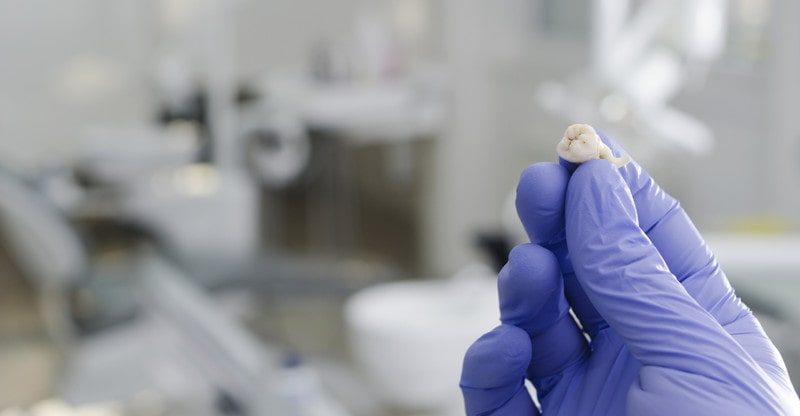Wisdom Teeth Extraction Surgery: How to Prepare and What to Expect
Among the 32 teeth that an adult has, one usually stands out among others because of its special moniker: the Wisdom tooth. Well, they are really called “Wisdom Teeth” because each person normally has a total of 4, which are located at the very back corner of the upper and lower arch of the teeth. Without using its fancy name, we can also refer to this type of teeth as a molar—a third molar to be exact.
How did the word “wisdom” get tagged to the third molar?
Historical anecdotes would tell us that the third molars got their name because they erupt into existence at a time when a person is already at a stage when they are thought to be “wiser.” They usually appear at around the age of 17 or latest, 25 years old.
If you have already way surpassed the age in which the wisdom teeth are expected to show, do not panic just yet. As Singapore dental portal Dentaleh explains, there may be underlying factors contributing as to why your set of teeth is a bit shy of having the correct number expected for the third molars.
One reason may be is that you do not have them or you only have fewer than 4. That should not cause any problem at all. However, if you do have a number of wisdom teeth still hiding beneath the gums, even when it is past the time they are supposed to erupt, then that is a different problem altogether.
Wisdom teeth that remain embedded inside the gums with nowhere else to go or those that actually erupt, but are in a complicated position, are called impacted teeth. Impacted teeth that do not cause any problem can be left the way they are, while those trapped teeth that bring pain, discomfort, or other complications should be extracted.
Complications can happen when the wisdom teeth do not erupt normally in the right position or when they do not get proper cleaning—cavities and bacteria can thrive, causing decay. These instances can put the oral health of a person in danger if left untreated.
Going for a dentist consult
Those who feel like they may have issues about their wisdom teeth should consult with a dentist. A dentist would be able to assess the condition of the teeth by conducting some oral evaluation and X-ray tests to check on your wisdom teeth.
If the dentist does not see any problem concerning the wisdom teeth, then the person is off the hook from any dental procedure. Third molars that pose to be troublesome should be extracted. A patient has to undergo wisdom teeth extraction surgery. This dental operation can be done by a licensed dentist or an oral and maxillofacial surgeon.
Going for wisdom teeth surgery
Even though wisdom teeth surgery is done within the day and will not need hospital admission, it is important that patients come prepared on the day of their operation. Preparation does not only happen overnight. In fact, a patient should already start preparing, if possible, right after locking in the surgery date with their dentist.
What is there to prepare? Consider the following:
Assistance you will need on the day of the surgery. If you are in to have a couple of impacted molars removed, then you should arrange for someone to accompany you during your commute from the clinic going home. Why? Some patients with low pain tolerance may be given general anaesthesia during the surgery to ease their discomfort. Following the operation, the general anaesthesia may have some side effects, such as drowsiness, confusion, muscle pain, nausea, etc. It is best that patients have someone to assist them in case these side effects occur.
Food or medications you should not take prior to the surgery. Patients who are undergoing the wisdom teeth operation with general anaesthesia will be required to fast from food and drink beginning midnight of the day of their scheduled surgery. Medications that may complicate the procedure should also be avoided. It is important that your dentist is made aware of all medicines that you are taking as a precaution.
Prepare foods to eat for aftercare. It is recommended that patients switch to a soft diet as part of their wisdom teeth extraction aftercare. It will take some time for the gums to heal. Hence, it is best that you already have a prepared menu and have already done your groceries before your surgery, so you will not have to think or get stressed about what you can or cannot eat while in recovery.
What to expect during the extraction day. These are the steps that will be done by your dental surgeon or dentist on the day of your wisdom tooth extraction:
- Apply anaesthesia to the area where the trapped tooth is located.
- Create an incision in the gums to access the bone and tooth.
- Take out the bone that obstructs the tooth.
- Reach the tooth and extract it—if a tooth cannot be removed as a whole, then it will be cut into smaller portions in order to be pulled out.
- Thoroughly clean the extraction area where the impacted tooth was removed from to ensure that no particles are left before closing the incision.
- Close the gums by stitching, if needed.
- Put sterile gauze to cover the extraction area to manage bleeding, aid in forming a blood clot, and allow the wound to heal.
What to expect after the extraction procedure. Patients can expect to experience bleeding, bruising, inflammation, and pain right after their surgery and in the days that come after. If there is no complication, these will subside on their own as you heal and recover.
However, get in touch with your dentist immediately if symptoms like severe bleeding, challenges with breathing, consistent and intolerable pain, fever, numbness, inflammation that aggravates, or presence of pus in the extraction site are experienced. These can be signs of complications, such as an infection or damage to the nerves and will need to be addressed with urgency.



